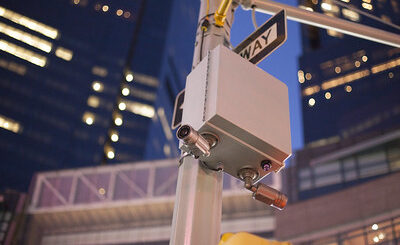By Yuleisy Vargas
Many people are skeptical about getting the COVID-19 vaccine because of the possible side effects (but not everyone reacts the same way and if they do, it is short lived). Others doubt how this vaccine was created and its real purpose. That’s why many people refuse to get it, and now more people are afraid because of what occurred with the Johnson & Johnson vaccine, which the federal health officials had to pause because it was causing severe blood clots.
According to Geoff Brumfiel from National Public Radio news, Joyce Ann Kraner of Murfressboro, Tennessee is skeptical of the vaccine. “Despite the fact that millions of people have been vaccinated safely, Kraner worries about complications. She believes some people are having “life-threatening reactions” to the vaccine that the media aren’t reporting. Many such reports shared on social media are false or misleading. And she’s worried because it’s so new: “We don’t know the long-term effects. We don’t know what it’s going to do,†she says.

Also, Joselyn Consuegra a young woman who expressed her belief on the COVID-19 vaccine says “I would not get the vaccine for its components which I hear that are harmful to the body. A good diet, vitamins and a healthy life are the same or safer to avoid getting infected.â€
Fake news and misinformation are being spread in the communities, causing fear in people when deciding to get vaccinated, as it is with Joselyn Kraner. Also, this causes some people to try managing other people’s choices because of what they saw and heard, which increases the percentage of people who are not vaccinated. However, people need to search how beneficial it can be to get the vaccine. According to the CDC:
- Wearing masks and staying six feet apart from others help reduce your chance of being exposed to the virus or spreading it to others, but these measures are not enough. Vaccines will work with your immune system so it will be ready to fight the virus if you are exposed.
- A growing body of evidence suggests that fully vaccinated people are less likely to be infected without showing symptoms (called an asymptomatic infection) and potentially less likely to spread the virus that causes COVID-19 to others. However, further investigation is ongoing.
- Stopping a pandemic requires using all the tools we have available. As experts learn more about how COVID-19 vaccination may help reduce spread of the virus that causes COVID-19, CDC will continue to update its recommendations to protect communities using the latest science.
Michelle Crouch, from the American Association of Retired Persons (AARP) says, “A Centers for Disease Control and Prevention (CDC) report published on April 2 found that the two-dose COVID-19 vaccine regimen prevented 90 percent of coronavirus infections two weeks after the second dose, which is when you are considered fully vaccinated. Of the 2,479 vaccinated people in the CDC study, just three had confirmed coronavirus infections after they were fully vaccinated.†This means that being fully vaccinated can help you prevent COVID-19 infections, while not being vaccinated would put you more at risk of being affected by the virus.
Society needs to seek credible information and inform themselves with people who know about the subject and do not believe everything others say. More people need to think of deciding to get vaccinated to prevent the virus a little more. People need to remember how many have been affected by this virus, financially, have lost family and even their jobs. But to return to normal, people should be aware and see the positive side of being able to get vaccinated. According to Geoff Brumfiel from National Public Radio news “Reaching high levels of vaccination would mean new outbreaks of the coronavirus would die down quickly, as opposed to growing and spreading.”





